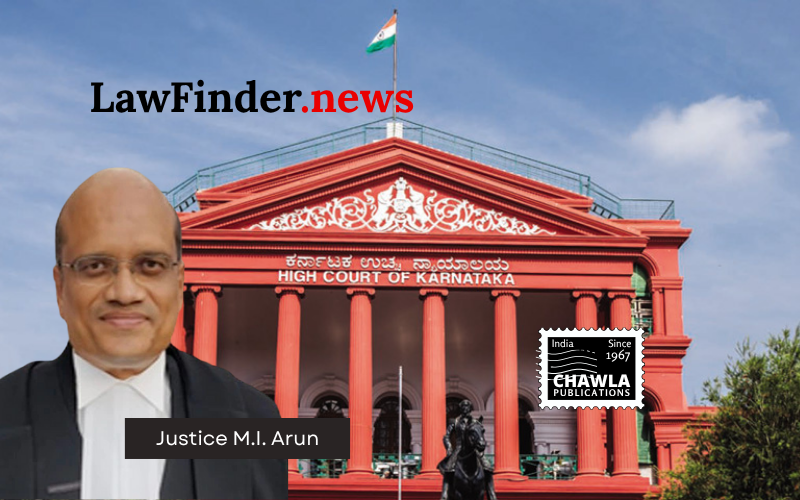Allegations Based on WhatsApp Messages Insufficient for Charges of Bribery and Undue Influence
In a significant judgment, the Karnataka High Court has quashed the criminal proceedings against Dr. K. Sudhakar, a Member of Parliament representing Chikkaballapura Lok Sabha constituency. The proceedings were initiated based on allegations stemming from WhatsApp messages sent by Dr. Sudhakar to an IAS officer during an income tax raid at the residence of Govindappa, a candidate in the same constituency.
The case, Writ Petition No. 18910 of 2025, was decided by Justice M.I. Arun. The allegations against Dr. Sudhakar included charges under Sections 171B, 171C, 171E, 171F, and 511 of the Indian Penal Code (IPC), as well as Section 123 of the Representation of People Act, 1951. The charges were based on WhatsApp messages sent by Dr. Sudhakar to the IAS officer, C.W.2, requesting help during the raid.
The High Court meticulously analyzed whether the allegations in the chargesheet constituted the offences alleged against Dr. Sudhakar. The court noted that the only evidence against Dr. Sudhakar was the WhatsApp message sent to C.W.2, and there was no evidence linking Dr. Sudhakar to the unaccounted cash seized during the raid. The court highlighted that the mere sending of a message requesting help does not satisfy the legal ingredients required to establish offences of bribery, undue influence, or an attempt to commit such offences under the cited statutory provisions.
Justice Arun emphasized the definitions of bribery and undue influence as per Sections 171B and 171C of the IPC, respectively. Bribery involves giving or accepting gratification to influence electoral rights, while undue influence involves voluntary interference with the free exercise of electoral rights. The court found that the WhatsApp message did not constitute any act of bribery or undue influence as defined under these sections.
Furthermore, the court addressed Section 511 of the IPC, which pertains to attempts to commit offences. The court observed that the WhatsApp message did not demonstrate any act towards the commission of the alleged offences, thus failing to satisfy the criteria for an attempt as per Section 511.
In light of these observations, the court declared the trial court's order taking cognizance of the offences as bad in law. Consequently, the proceedings against Dr. Sudhakar in C.C.No.19099/2025 were quashed, and the writ petition was allowed.
This judgment underscores the necessity of concrete evidence to substantiate charges of electoral offences and emphasizes the importance of safeguarding individuals from undue legal harassment. Legal experts have welcomed the judgment, recognizing its potential to set a precedent for similar cases in the future.
Bottom Line:
Criminal Law - Quashing of proceedings - Allegations against the petitioner based on WhatsApp messages to an IAS officer, in connection with an income tax raid, do not satisfy the ingredients of offences under Sections 171B, 171C, 511 of IPC and Section 123 of the Representation of People Act, 1951.
Statutory provision(s): Sections 171B, 171C, 171E, 171F, 511 of the Indian Penal Code, 1860, Section 123 of the Representation of People Act, 1951
Dr.K. Sudhakar v. State of Karnataka, (Karnataka) : Law Finder Doc id # 2787793




